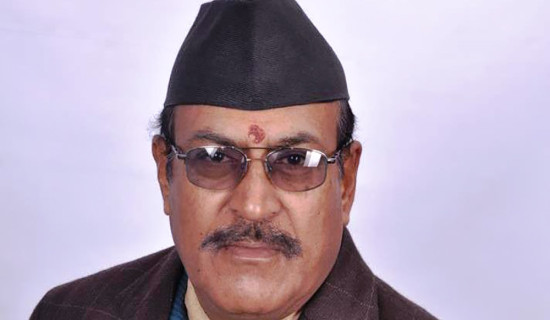- Monday, 22 September 2025
Rising Dengue Threat
Driven by climate change and growing urbanisation, dengue, once a seasonal disease, has now become a year-round threat. The convergence of the irregular monsoon seasons, rising temperatures, and changing mosquito behaviour has led to unprecedented risk levels. With several areas remaining waterlogged amid heavy rain, Nepal has seen a significant increase in dengue cases. The country has seen a dramatic rise in dengue infections, with over 1,200 cases since the start of 2024. According to the Epidemiology and Disease Control Division (EDCD), 1,268 cases of dengue were recorded in 72 districts as of June 23 of this year. This escalation in cases underscores the urgent need for comprehensive strategies to control the spread of dengue and safeguard public health.
Dengue fever, transmitted by female Aedes mosquitoes, particularly Aedes aegypti and Aedes albopictus, has become a significant global health concern. As dengue lacks a specific cure, health experts emphasise the importance of controlling mosquito breeding, managing symptoms, and involving communities to prevent infection and mitigate the disease's spread. In Nepal, the number of dengue cases has surged, with nearly every district reporting infections. The country’s diverse topography, climate change, and urbanisation patterns create conducive conditions for the proliferation of Aedes mosquitoes. The widespread vulnerability demands a coordinated and sustained effort to combat the disease.
As per a news report published in this daily, in Banke, dengue cases have been reported in every municipality within the district. A total of 405 cases were reported in the current fiscal year. The extensive distribution of cases highlights the district-wide threat posed by this disease. Health officials in Banke have raised alarms about the high risk of a full-blown dengue outbreak if immediate action is not taken. The district’s health infrastructure alone can't manage this threat; it requires a multi-faceted approach involving all stakeholders. The peak season for dengue, from July to November, is particularly concerning, as mosquitoes carrying the virus can infect multiple individuals simultaneously.
Despite efforts by health officials, controlling the outbreak remains challenging. Local authorities have launched a district-wide clean-up campaign targeting public places and offices to eliminate mosquito breeding grounds, particularly stagnant water where mosquito larvae thrive. However, these efforts must extend beyond public spaces. Citizens play a crucial role in this fight. It is imperative that residents actively participate by ensuring their homes and surroundings are free of stagnant water. Simple measures, such as covering water storage containers, regularly cleaning gutters, and disposing of unused containers, can significantly reduce mosquito breeding sites. Community involvement is essential to making these preventive measures effective. While immediate measures are necessary, they must be part of a broader, sustainable strategy.
Enhancing border surveillance to prevent the cross-border spread of dengue, raising public awareness through continuous education campaigns, and strengthening health infrastructure to handle outbreaks are long-term measures that need immediate implementation. The concerned authorities must prioritise dengue prevention and control in their public health agenda. To combat the dengue outbreak in the country, a coordinated and sustained effort from all sectors of society is essential. Continuous efforts to inform residents about the risks and monitor the situation year-round are crucial. Immediate actions, such as clean-up campaigns and public awareness drives, are vital. However, these must be supported by long-term strategies to enhance resilience against future outbreaks.

















